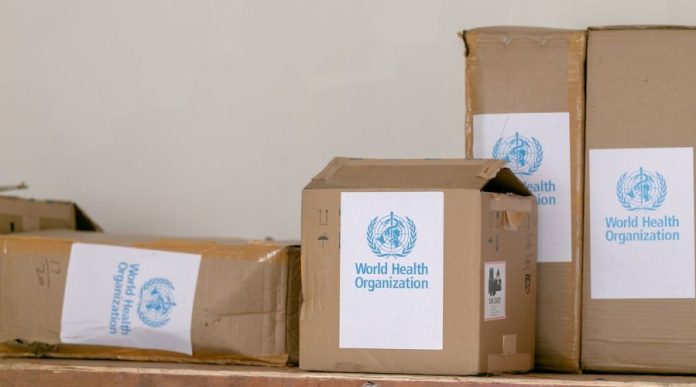At its 24th meeting in Geneva from 24 to 28 April 2023, the World Health Organization (WHO) Expert Committee made a landmark decision for patients with multiple sclerosis (MS).
For the first time, it included treatments for Multiple Sclerosis in the Model Lists of Essential Medicines (EML). 1
What is the EML?
The EML is a list of the most effective and safe medications for a given illness. Government agencies across the world use the EML as the basis for decisions on managing drug procurement, health budgeting judgments, and prescribing guidelines.
More than 150 countries determine what to include in their national list of essential medicines based on this WHO list. 1
Having received an endorsement from the WHO, MS patients and clinicians hope to see sufferers routinely treated with effective drugs, and formal recommendations for access adopted.
Speaking to Medical News Bulletin, MS Canada, a Canadian non-profit organization connecting people living with MS with resources and research, stated: “[The WHO decision] formally acknowledges multiple sclerosis as a global healthcare priority. The WHO EML provides countries with an evidence-based advocacy tool to achieve, increase, and improve access to disease-modifying therapies (DMTs) in low-middle-resource countries. MS Canada is a proud member of the Multiple Sclerosis International Federation and, along with other member societies, contributed to the application resulting in this significant milestone for the MS community.”
MS Treatments Supported by WHO
Multiple Sclerosis is an incurable autoimmune disease that manifests as a person’s own immune system attacking their neurons.
Modern treatments are aimed at relieving symptoms and preventing the progression of the disease. WHO recommended three treatments in the EML—cladribine, glatiramer acetate, and rituximab. 1 All are classified as disease-modifying therapies (DMTs).
DMTs work by suppressing immune cells that damage the central nervous system.
Cladribine
Cladribine was approved for the treatment of highly active relapsing-remitting multiple sclerosis.
It affects two types of lymphocytes (T and B) that attack myelin in the brain, but unlike some other MS drugs, its action is selective and does not suppress the whole immune system.
Cladribine reduces relapses by 58% and reduces the risk of worsening disability by 33%.2
Glatiramer Acetate
Glatiramer acetate is one of the oldest MS drugs. It is usually the first drug given to a patient with active relapsing multiple sclerosis.
Its mode of action is like cladribine, but it increases the risk of infections because the effects on the immune system are more general. 3
Glatiramer acetate reduces relapse rates by 34%. The drug does not significantly slow the progression of disability, but it mitigates the transformation of a clinically isolated syndrome into MS by 40%.3
Rituximab
The inclusion of rituximab in the EML attracted particular attention because the drug is not officially approved by regulatory authorities for MS treatment.
Rituximab has demonstrated good efficacy and safety in clinical trials and has been used off-label in many countries. “Given the evidence base and the increased affordability of rituximab, including the availability of prequalified biosimilars, it has been prioritized over on-label alternatives as an essential medicine to treat relapsing-remitting and progressive MS,” explained Secretariat of the WHO EML, Dr. Benedikt Huttner. 1
MS Societies Applaud WHO Decision
The American National Multiple Sclerosis Society also praises the WHO for its decision but hints at the importance of further expanding the list. “While there are far more DMTs available in some parts of the world, including these DMTs on the EML list is a significant action towards equitable access around the world,” says their official statement. 4
Commenting on rituximab, the coalition notes the importance of its inclusion as “off-label DMTs can also be an important intervention for disease modification and may be more readily available and affordable in other health systems, especially in low-resource settings.”4
References
- World Health Organisation. WHO endorses landmark public health decisions on Essential Medicines for Multiple Sclerosis. Accessed September 20, 2023. https://www.who.int/news/item/26-07-2023-who-endorses-landmark-public-health-decisions-on-essential-medicines-for-multiple-sclerosis
- Cladribine (Mavenclad) | MS Society. www.mssociety.org.uk. Accessed September 20, 2023. https://www.mssociety.org.uk/about-ms/treatments-and-therapies/disease-modifying-therapies/cladribine#:~:text=These%20cells%20normally%20attack%20viruses
- Glatiramer acetate Copaxone | Multiple Sclerosis Society UK. www.mssociety.org.uk. Accessed September 20, 2023. https://www.mssociety.org.uk/care-and-support/resources-and-publications/publications-search/glatiramer-acetate-copaxone
- National MS Society. Multiple Sclerosis Coalition Applauds World Health Organization Decision. National Multiple Sclerosis Society. Published July 26, 2023. Accessed September 21, 2023. https://www.nationalmssociety.org/About-the-Society/News/Multiple-Sclerosis-Coalition-Applauds-World-Health



